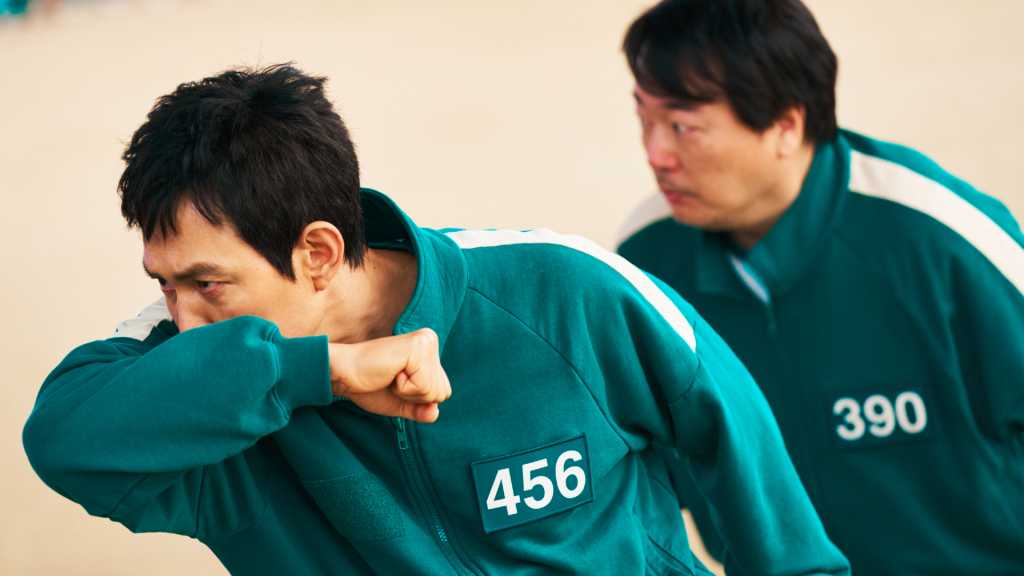Squid Game season 3 dropped exactly a week ago, and with it, three new children’s games were introduced – all naturally horrifying, but so compelling that you can’t help but be glued to the screen.
The Netflix show now has 11 games in total, with Red Light, Green Light taking place twice across seasons 1 and 2. Each game has its own levels of difficulty. While some are physical, others rely on contestants outwitting one another. But perhaps the worst are the challenges designed to encourage players to lock away their morals and throw away the key.
Therefore, ranking them in terms of brutality is no easy feat. After all, it’s not like any challenge in Squid Game is a walk in the park. Nonetheless, I’ve done my best to reflect on each game, listing them in reverse order from least to most brutal. Take a gander and see if you agree.
For this list, I won’t be counting other ‘minigames’ (it gives me the ick just saying that) played off the island, like Ddakji. I also won’t be referencing many major spoilers, other than the games themselves.
11 – Dalgona
While there’s no denying that Dalgona is a technically difficult game, especially for those with the dreaded umbrella shape, it mainly relies on the contestants sitting alone and trying their best to remove a pre-determined shape from of a cookie. They’re only accountable to themselves, and this game doesn’t encourage people to sabotage one another.
There are still psychological games at play. Those with the more difficult shapes begin to resent their rival players with easier cookies. Those who have a trickier task also must contend with other contestants being murdered inches from where they sit.
Yes, Dalgona is bad. But other games are worse.
10 – The Six-Legged Pentathlon
Squid Game has several team challenges on offer, which add another layer of responsibility to the game. We can see how this pressure affects players in the Six-Legged Pentathlon, where people make slip-ups in the relay from the stress of having all eyes on them.
Some teams (such as Gi-hun’s) band together to provide advice and keep a level head… just. However, others grow increasingly frustrated, wasting time and ultimately getting their teammates murdered.
The Six-Legged Pentathlon shows that teamwork comes at a price.
9 – Tug-of-War
Sticking to that theme, Tug-of-War gives players the chance to pick their group for what appears to be a true test of strength. But as we learn, this game isn’t all about that.
Regardless, we see the players enter a ‘survival of the fittest’ mentality, with many of the biggest, burliest men banding together, as they believe that’s how they’ll triumph. The game encourages players to leave behind those perceived as physically weaker: older players, women and those with smaller builds.
Tug-of-War brings out the pack mentality in all its ugly glory.
8 – Squid Game
On the other end of the spectrum is the final test from season 1, Squid Game. This is a one-on-one battle, so the final pair have no choice but to actively try to cause the other person to lose – not just the game, but their life.
This is particularly brutal in the context of the show, as it comes down to two players who not only share a personal history but have had their prior relationship obliterated due to a crushing betrayal. It proves that money can blind people, even those who previously considered themselves family.
Squid Game shows that the ultimate victory doesn’t feel like a win at all.
7 – Red Light, Green Light
The first game in the show outranks many of the others due to its pure shock factor. Many contestants who’ve entered the games don’t yet know what they’ve signed up for, and enter flight mode, trying to escape. As such, this is the game that wipes out players in a flash, especially in season 1.
The second time it’s played, Gi-hun uses his prior knowledge to get more contestants across the line. But even with his help, players start to turn on one another, using others as human shields, or even deliberately pushing them (looking at you, Thanos).
Red Light, Green Light dehumanises people into becoming nothing more than a number.
6 – Jump Rope
Physically, Jump Rope is one of the most demanding games and does not allow any passes for those who are injured or otherwise hindered. It also punishes those who go later, as the rope begins to speed up, increasing the chances of players falling to a terrifying death.
While this does mainly seem like a test of personal skill (ie, not requiring one player to make another lose), we see contestants actively choose to push others off to increase the prize pool, which is sickening.
Jump Rope shows why there’s no mercy in these games.
5 – Mingle
The twisted carousel ride, Mingle, relies on snap decisions and again amplifies the pack mentality discussed earlier. As players must enter a room in a specific number of groups, they need to team up fast, and that means making awful choices as fast as possible.
Here, we really see the ugly side of players, with some even resorting to tripping others up to slow them down, or killing people in a room so they meet the number quota, with some even relishing this opportunity (001, looking at you this time).
Mingle demonstrates why panic is your enemy.
4 – Marbles
At the start of Marbles, many people team up with those they’re closest to, and that makes this game all the more heartbreaking when they realise that they must take all their opponents’ marbles within 30 minutes, or face execution.
We see some players reflect on their own lives and play fairly, and we also see others take advantage of those with kind natures (Ali and Sang-woo). This game also guarantees that half the players will be wiped out – your odds are 50:50, no matter what.
Marbles shows that you can’t trust anyone.
3 – Glass Bridge
Like Jump Rope, Glass Bridge is a nightmare for anyone with a fear of heights. However, there’s an added layer of trickery involved in figuring out the right path across these stepping stones without falling to your death.
That means that players often become selfish, refusing to move any further in case they accidentally step on breakable glass rather than the safe, tempered panes. While some try to work as a team, others are happy to sacrifice people to find the correct route.
Glass Bridge is a true testament to players learning ruthlessness.
2 – Sky Squid Game
By the time the final game of the show comes around, Sky Squid Game, most of the contestants left standing have no morals left. They’re perfectly willing to kill for their own gain, even if it means sacrificing someone completely innocent, making it even more brutal than the original Squid Game finale.
This game takes everything that we’ve seen before: betrayal of trust, pack mentality, and general panic, and combines it all into a gruesome spectacle for the entertainment of the VIPs.
Sky Squid Game encapsulates this awful competition perfectly.
1 – Hide and Seek
The reason Hide and Seek ranks number one on this brutality list is that it’s the first time that players have been asked to actively murder other players to win. While other games have encouraged selfishness, and some people choose to take a lethal route, they have no choice here… if they’re on the red team.
While they are given a ‘fair’ choice that allows them to switch teams and hide, those in the blue bibs have a much harder job by either running down the clock, or finding an exit with two other keys. It’s literally asking players to kill or be killed.
That sort of dilemma finally destroys the players’ moral compass and sets the tone of the final two games, with some players actively enjoying killing others, and dehumanising themselves. It’s also one of the most heartbreaking games of the show, with some major players eliminated, even those who are trying to survive in the kindest way possible.
Hide and Seek turns players into monsters, simple as that.
Related articles


